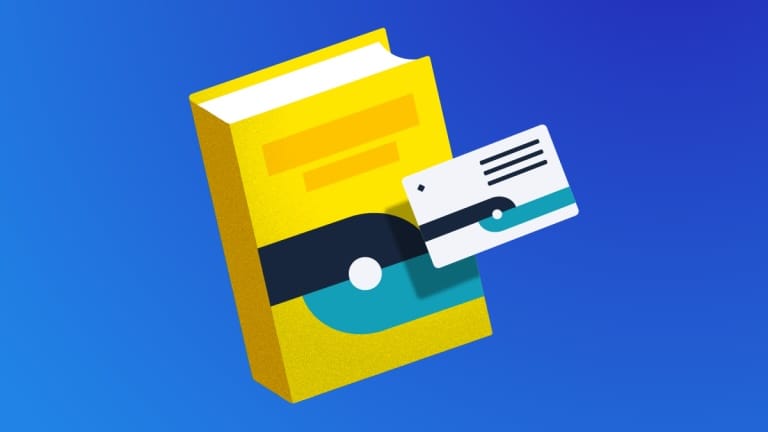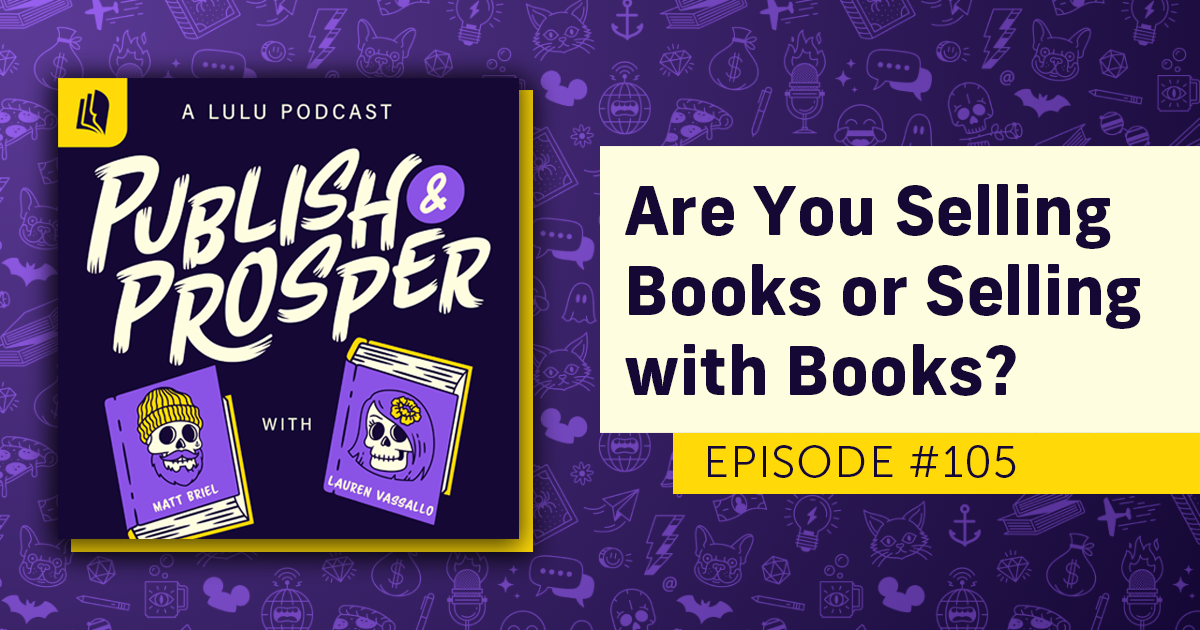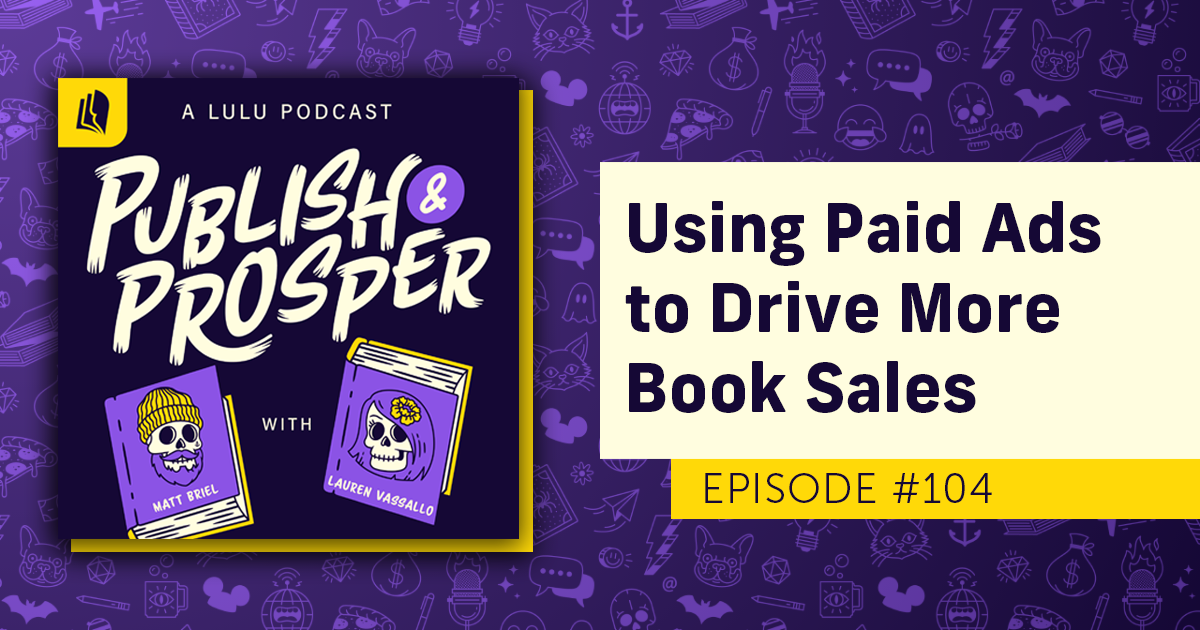Author Marketing: Why Your Book Is Your New Business Card
Writing a book is one thing. Selling a book is a unique challenge. Author marketing is a complicated endeavor. That’s why anyone who creates a book—be it an author, educator, artist, or entrepreneur—needs to consider how to use that book to market themselves. One classic example is to use your book like it’s a business card.
You can find an array of differing opinions about this idea online. Ranging from assurances that your book IS your business card, to lamenting the current state of business books. It’s a hot topic, to say the least, which hasn’t died down over the past few years.
Coupled with the tremendous access you have to information and the vastly reduced cost of production, it’s vital to understand how your book fits into a broad author marketing plan.
Books and Author Marketing
Few things in life are as simple as they seem to be. Publishing is one such exercise. Access to the tools is widely available (and free on Lulu). But just publishing a book does not ensure success. So, before you dedicate hours and hours of your time and energy, you need to know why you’re publishing that book and your goal for the book.
No doubt both answers will vary wildly for everyone. But for creators who are trying to grow their brand or business, there are a couple of commonalities. The why will hinge on brand growth, sharing a message or story, or some similar effort to add visibility and credibility to you and your brand. The goal will be a mix of sales (to make money) and eyes on the book (to earn fans and followers).
For many authors and creators publishing books today, their book is just a step to bigger brand goals. Even if you’re purely an author and your product is just your book—your goal shouldn’t be to sell a copy of that book but to earn a fan who will buy copies of everything you publish. Luckily, books are naturally powerful tools for sharing information AND validating the credibility of the author.
They’re like super-powered business cards in that way.
What, Exactly, Is a Business Card?
If you think a business card is just a small rectangle with your name, email, phone number, and logo, I have bad news for you. You are wrong.
Maybe not historically—a business card is literally a piece of cardboard with text on it. But a ‘business card’ is something much more. It’s a testament to your skills and knowledge. Your business card is an invitation to contact you.
That connection can make or break your business (whether that business is just selling books or something more). I love Ryan Holiday’s definition of a modern business card:
Anything that genuinely and authentically establishes your expertise and gets you attention can be a business card.
Like many things in the digital age, we must discard old definitions. A business card is more than paper, ink, and laminate. In fact, it’s easier to think of your business card as a personal meme.

The goal is to make the person who receives the business card remember you. It’s a reference point and (ideally) a viral thought. You want a business card that clearly defines what you offer and why it’s valuable in a way that inspires the recipient to remember you. You want to be seen as someone of value. You want that person to use the card to contact you.
Whatever shape your business card takes, the role is the same: prove your expertise and inspire contact.
Why Books Make Great Business Cards
What sets your book apart is the special power of a printed work. That little something that tells us “this is important” when we flip through the pages. Herman Hesse famously talked about the magic of books in an essay of that very name.
While you’re planning your author marketing efforts, you have to think of your book as both product and advertisement. Like most who sell a product, you’ll need to be prepared to give away some copies of your book—the same way you hand out business cards to people who want to know more but aren’t sold on you yet.

Your Free Lulu Account
Create a Lulu Account today to print and publish your book for readers all around the world
Books As Business Cards for Entrepreneurs
If you’re an entrepreneur or an industry professional, you’ll use your book as part of a marketing plan. The earnings from sales will pale compared to the return you get proving your value to a reader. Successful entrepreneurs know that list building (getting contacts for your email list or social followers) is vital.
Books As Business Cards for Authors
Author branding is critical to all successful authors. You need to earn followers and fans who are eager to buy your work.
If you’re an indie author, you’ve probably seen a variety of innovative ways for authors to present themselves. Bookmarks, ebooks on thumb drives, digital download codes; opportunities abound. But what better way to promote how awesome your book is than to let someone read the book?
We treasure books. Even books I didn’t particularly like much have a place on my bookshelf. Every time I’ve moved, my books are the one item I always pack up and take with me. Books are special.
You can lean on that to help ensure the people you give your book to hang on to it and—in all likelihood—read it.
The Economics of Giving It Away
The most important limiting factor in your book’s success is always twofold: cost and quality. The book must be good. Whether it’s a fictional story or an account of your business acumen. Quality always comes first.
Once you’ve got your quality content, think about how much it will cost to produce. Business cards (the actual paper stock cards) are very cheap to produce. Giving them away costs almost nothing, so you can hand them out to anyone and everyone with little cost to you.
Books are very different. Printing a book can cost anywhere from $5.00 to $50.00 depending on the paper, ink, and binding options.
For a business, you might create a very specific piece of content to publish and do so in a small, inexpensive format. A 150 page, Pocket-sized paperback is $4.25 to publish on Lulu. With some bulk discounts, you could have enough copies to give to individuals at an event without incurring excessive costs.
Making it Unique
The best part about print-on-demand is your ability to offer something completely unique. Say you’re an author and you’re going to an event with numerous marketing and promotional experts. You want to have some copies of your book to give them in hopes they’ll want to promote you. Awesome idea!
What you should do is include some additional pages at the beginning of the book. Talk about yourself. Your goals. The success you’ve already achieved with this story. Accolades. This isn’t just another copy of your story; it’s a specifically targeted version meant to grab attention.
Likewise, include a page with contact information at the back. And of course, sign the title page at the beginning.
It may not seem like much, but the benefits of print-on-demand are an important way for you to stand out from the crowd.
Innovation, Expertise, You
That’s what it comes down to. You. Your brand, your product. The ‘thing’ you’re offering that no one else has. Whatever form of business card you use (or maybe you use multiple forms) everything circles back to you.




